Exploring the tensions of a long-term relationship, the pop artist’s second album is the work of a keen-eared musician coming into their own as a producer and stylist.
Cheap Queen, the debut album by King Princess, played like one of those summer nights that stretches on forever. Across a series of louche, Mellotron-heavy ballads, the New York songwriter and producer born Mikaela Strauss sang about shooting the shit with friends and exchanging furtive glances with girls across crowded parties, each scene rendered with the insouciant, reflexive cool of an Eve Babitz story. It was a debut whose supreme confidence belied the fact that Strauss first became famous after their Patricia Highsmith-referencing debut single “1950” went viral in early 2018. Where so many musicians react to virality with hesitance—quickly shifting gears or denouncing their early work—Strauss delivered on her early promise with the grace and mien of a star.
Like Cheap Queen, Strauss’ second record Hold On Baby is urbane and self-possessed, the work of a keen-eared musician coming into their own as a producer and stylist. She sounds even more like herself: More flexible as a vocalist, more cutting as a lyricist, more confident in her own power to bridge gaps between disparate styles. If Cheap Queen’s palette was ambiguously vintage—all old-school soul flourishes, redone as to slot in easily somewhere between Troye Sivan and Lorde—Hold On Baby firmly positions Strauss as someone who came of age in the 2010s, when indie rock was hitting its mainstream peak.
Working alongside a murderers’ row of mainstream-indie heavy hitters including Aaron and Bryce Dessner, Ethan Gruska, Shawn Everett, and Mark Ronson, Strauss pulls influences liberally but never thoughtlessly: A Strokes-y guitar line lopes through “Cursed,” while “Crowbar” nods to Sufjan Stevens’ fluttering piano ballads; the piano at the beginning of “Dotted Lines” recalls Rostam Batmanglij and Ariel Rechtshaid’s work on Vampire Weekend’s Modern Vampires of the City, and “Sex Shop” feels of a piece with the alienated sexuality of St. Vincent’s Strange Mercy. These references never feel winky or obvious, in large part because Strauss’ own sense of mood—their fondness for warm tones and spacious atmospherics that can turn cold and claustrophobic in a second—always takes precedence. She presides over the affair with a cool hand and a keen awareness of when to pull back—the restrained elegance of someone who’s spent most of their life hanging around studios.
Hold On Baby is a more solemn record than its predecessor. The energizing frisson that Strauss found on Cheap Queen has been supplanted by anxiety and despondence. Hold On Baby isn’t a breakup album; instead Strauss finds inspiration in the tensions that arise in a long-term relationship. On “Hold On Baby Interlude,” they describe themselves as “a chipped tooth with the nerve exposed,” and that queasy tension pervades the album. The plush, weightless love song “Winter Is Hopeful” curdles its sweet nothings (“I’m always thinking, thinking, thinking of you”) with ribbons of acid: “But you never believe it.” Strauss practically whispers the lyrics; it feels like she’s practicing lines from across the room rather than actually addressing the object of her desire. “Change the Locks,” one of a handful of songs produced with Aaron Dessner, explodes from pleading minimalism into booming, gritted-teeth arena rock, even though one of its primary tensions is impossibly small: “Losing your mind over something I wore/Just ’cause it’s yours.”
Despite its subject matter, Hold On Baby is far from dour. It’s rich with little details that make the whole thing feel alive, like the goofy, overdriven synth that opens “Too Bad” or the crunchy, stomping drums, played by the late Taylor Hawkins, that power “Let Us Die.” The unfussy orchestration of “Winter Is Hopeful” feels like a verdant update of Cheap Queen’s humid atmosphere; it floats in and out of focus like the scent of jasmine on a spring breeze. Everything on Hold On Baby feels so easy that its missteps are particularly overbearing: “Little Bother,” a collaboration with New Jersey musician Fousheé, feels too similar to all the other emo revival songs that have shown up on pop albums over the past couple of years. It’s one of the few times when Strauss’ personality gets lost in the vibe.
Between records, Strauss has become a more interesting vocalist. No longer singing with the soulful but slightly anonymous affectation of Cheap Queen, they refit their vocals to suit the needs of each song, jumping into a nasally drawl to convey the sneering nihilism of “Too Bad” and adding a strained, breathy tension to “Change the Locks” and “Dotted Lines.” And her lyrics still possess a dark, needling humor, whether running through a deadpan lockdown routine (“I watch TV, fuck my girl, check my phone, babe/PS5, change my shirt and drink alone, babe”) or telling an ex, “You look the same/Did you stop smoking weed?/Or trying to please your dad?” As with Cheap Queen, Hold On Baby doesn’t achieve any great innovations, but thanks to their stylistic and structural instincts, and their innate star power, Strauss still manages to thrill.

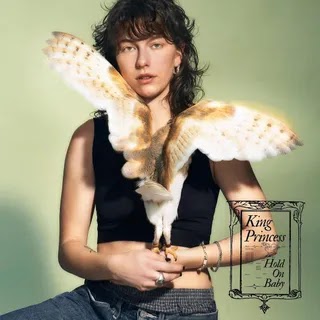

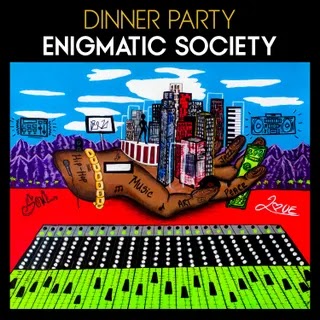
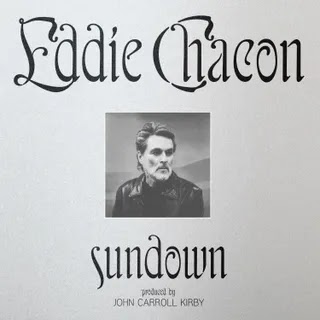
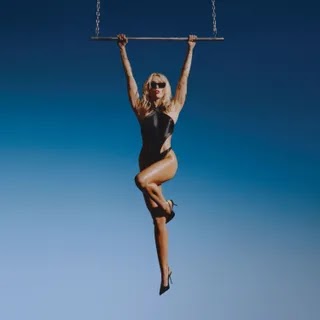








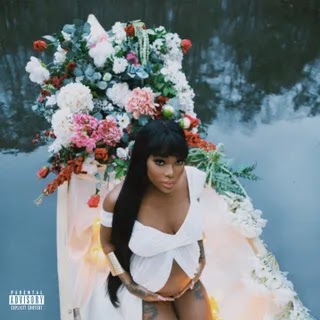

0 comments:
Post a Comment